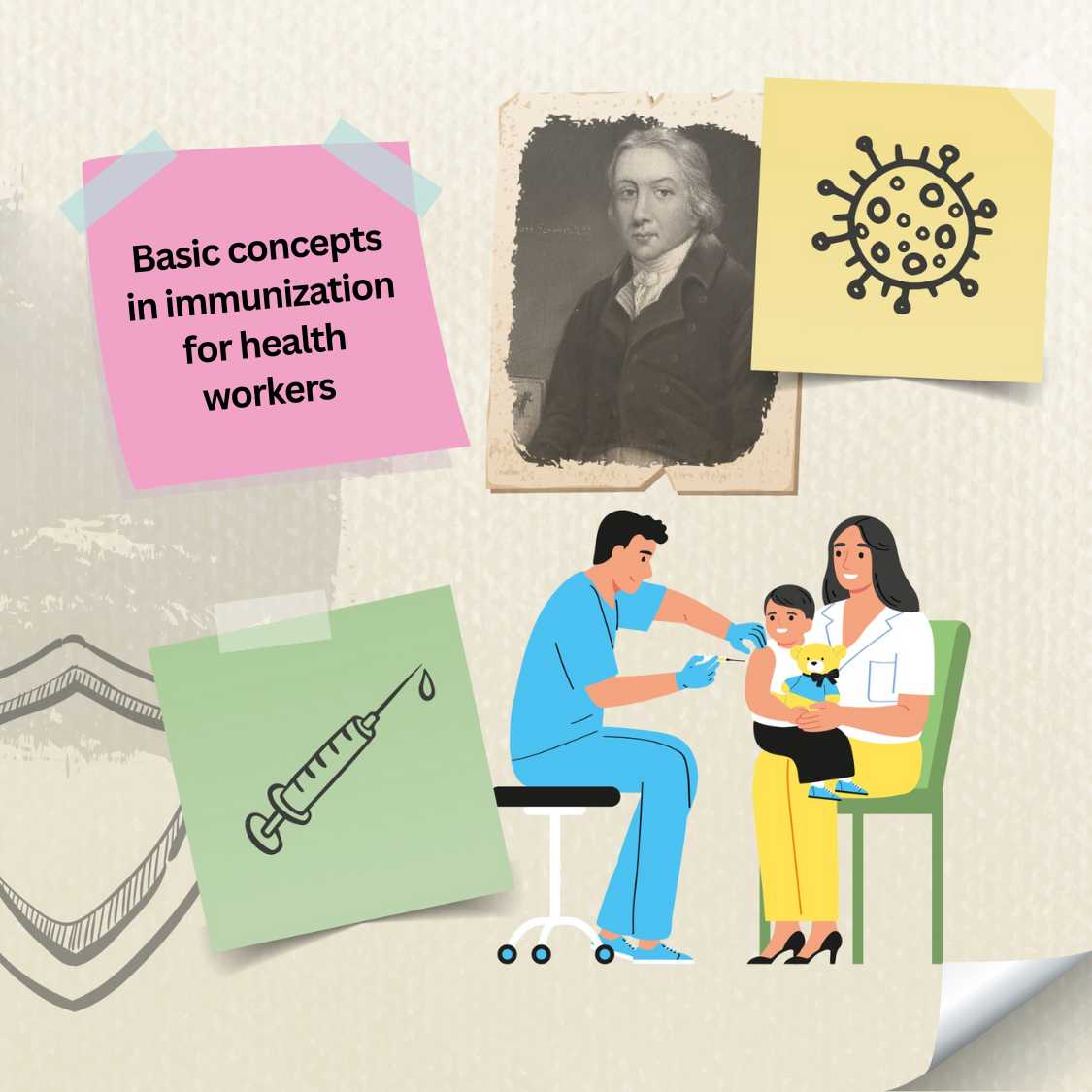
Introduction to the course
In recent decades, immunization programs have faced several challenges. During the introduction and deployment of COVID-19 vaccination, it became clear that health personnel had many questions about vaccine safety, equity, and delivery processes. These questions arise in a context where misinformation abounds, and health workers must address them. To increase confidence in vaccination, it is necessary for all health workers to improve their basic knowledge on vaccine development and on best practices in immunization, especially in relation to the benefits and safety of vaccines. This course “Basic Concepts in Immunization for Health Workers” is an introduction to the main concepts and basic principles of vaccines and immunization, including the types of vaccines available, their application throughout the life course and in special situations such as emergencies.
Purpose
The purpose of the course is to strengthen the fundamental knowledge of health workers on immunization and vaccines, and to provide essential information that will allow them to act as active promoters of the immunization program.
Competencies
The course provides an opportunity for participants to:
- Review the process of vaccine development and effectiveness.
- Review information on the functioning of the immune system and the categorization of vaccines according to their type, effectiveness and mode of administration.
- Consider essential information on the event surveillance system for vaccine safety, in order to understand expectations when faced with an Event Supposedly Attributable to Vaccination or Immunization (ESAVI).
- Tailor information on vaccines and vaccination by making it accessible to each community and individual, identifying factors that may generate reluctance or biases towards vaccines and develop strategies to minimize them.
Learning objectives
- Describe the main concepts of vaccines, vaccination, the history of vaccines, and immunization.
- Understand the clinical trial process that must be followed for the development of vaccines.
- Analyze safe administration procedures for vaccines.
- Describe the types of ESAVI and surveillance system use to monitor them.
- Know and understand the process of identification, notification, investigation, data management, causality analysis, determination of response actions and communication involved in ESAVI.
- Recognize the importance of immunization through a person's life course.
- Develop best practices and strategies to address vaccine hesitancy and debunk misconceptions.
This course is developed for
- Managers of national immunization programs in the Americas
- Health professionals in primary healthcare services, including immunization services
- Healthcare professionals who are entering the workforce or who need to update their technical skills
Course structure
- Module 1: Introduction and immunology
- Module 2: History of vaccines
- Module 3: Exploring more about vaccines
- Module 4: Events Supposedly Attributable to Vaccination or Immunization (ESAVI)
- Module 5: Immunization across the life course
- Module 6: Share information about vaccines
Workload
The course is available in the Public Health Virtual Campus of the Pan American Health Organization (PAHO). We estimate that each module can be completed within 60 minutes, depending on the participant's level of knowledge on the subject. Therefore, when considering the estimated time to complete all modules and the corresponding assessments, the course is assigned a total of 7 hours.
Assessment and certification
Participants must take a final exam after completing all the modules of the course. The final exam contains 30 multiple-choice or true/false questions. It is designed to give participants multiple opportunities to answer correctly until they achieve the required score of at least 70%. Participants who meet the requirements of approval of the course and complete the Virtual Campus Quality Survey will be able to download their certificate of approval issued by the PAHO.
